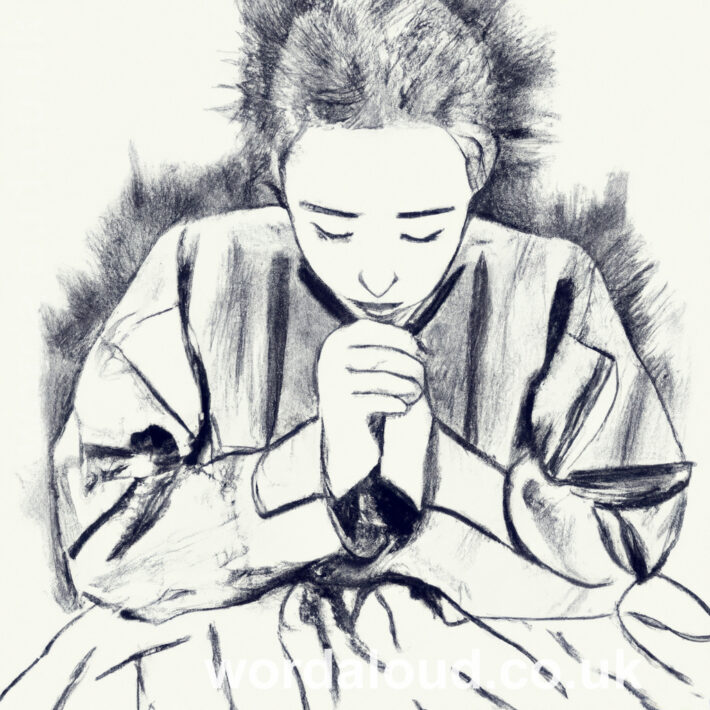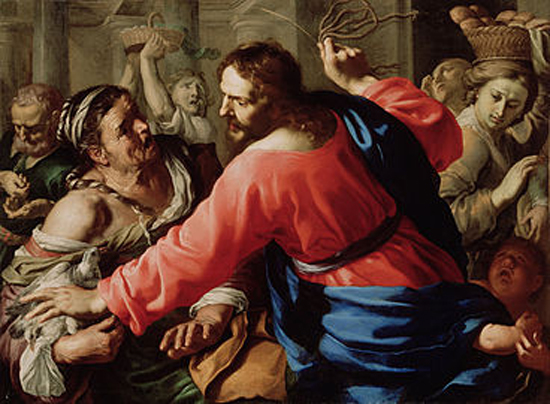Christian Art | Prayer With Jesus | Psalms | Prayer For The Restoration Of God’s Favour | King David As A Boy | Audio KJV | Love Revealed By Jesus Christ | King James Audio Bible
Psalm 85 | King James Audio Bible
YouTube: Psalm 85 | KJV | King James Version | Audio Bible | Word Aloud
Psalm 85, attributed to the sons of Korah, explores themes of restoration, divine favour, and the intricate relationship between God and His people. The psalm emerges from a specific historical context, likely a period of return from captivity, where the gracious hand of God had already been evident in bringing back the exiles of Jacob.
Opening verses of the psalm resonate with gratitude, acknowledging God’s favour upon the land and the remarkable restoration of Jacob from captivity. The psalmist, in a spirit of contemplation, reflects on the divine act of forgiveness, emphasizing that God has covered all the sins of His people.
The psalm explores divine anger and human repentance, a theme that echoes throughout the Bible. God’s wrath, previously kindled against the transgressions of His people, is hoped to have been extinguished. The psalmist petitions God to continue this transformative work, to turn away His anger, and to usher in a season of renewed divine favour.
Verses 5 and 6 articulate a profound longing for sustained divine mercy. Will God remain angry forever? Will His wrath extend throughout all generations? In the face of these uncertainties, the psalmist pleads for a revival—a fresh outpouring of God’s mercy that would bring about a renewal of joy among His people.
Psalm 85 is a prayerful dialogue with the divine, a seeking of God’s guidance and mercy. The psalmist implores God to revive His people once again, not only for their sake but so that the people may rejoice in God. The desire for spiritual renewal is not merely an individual aspiration; it is a communal plea for the restoration of collective joy in the divine presence.
The psalm concludes with an assurance of God’s goodness and a promise of abundant yield for the land. Righteousness, personified, goes before God, paving the way for His steps and guiding His people in the paths of justice. The psalmist envisions a future where divine favour, righteousness, and peace harmoniously coexist, creating flourishing and abundance.
Psalm 85 expresses spiritual journey of a community seeking restoration, forgiveness, and the enduring favour of a gracious God. It is an intimate conversation with the divine, marked by gratitude, repentance, and unyielding hope in the transformative power of God’s mercy.

Psalm 85 | King James Audio Bible KJV | Love Revealed By Jesus Christ
Lord, thou hast been favourable unto thy land: thou hast brought back the captivity of Jacob.
Thou hast forgiven the iniquity of thy people, thou hast covered all their sin. Selah.
Thou hast taken away all thy wrath: thou hast turned thyself from the fierceness of thine anger.
Turn us, O God of our salvation, and cause thine anger toward us to cease.
Wilt thou be angry with us for ever? wilt thou draw out thine anger to all generations?
Wilt thou not revive us again: that thy people may rejoice in thee?
Shew us thy mercy, O Lord, and grant us thy salvation.
I will hear what God the Lord will speak: for he will speak peace unto his people, and to his saints: but let them not turn again to folly.
Surely his salvation is nigh them that fear him; that glory may dwell in our land.
Mercy and truth are met together; righteousness and peace have kissed each other.
Truth shall spring out of the earth; and righteousness shall look down from heaven.
Yea, the Lord shall give that which is good; and our land shall yield her increase.
Righteousness shall go before him; and shall set us in the way of his steps.
Psalm 85 | King James Audio Bible KJV | Love Revealed By Jesus Christ
- Divine Restoration: The psalm centres around the theme of divine restoration, celebrating God’s favourable intervention in bringing back the captivity of Jacob.
- Forgiveness And Atonement: A central theme is the acknowledgment of God’s forgiveness, covering the sins of the people. The psalmist reflects on the transformative power of divine mercy and the atonement for transgressions.
- The Dynamics Of Divine Anger: The psalm explores the complex interplay between divine anger and human repentance, highlighting the poet’s understanding of God’s wrath and the desire for its cessation.
- Longing For Divine Favour: There is a profound yearning for God’s continued favour and mercy. The psalmist poses questions about the duration of God’s anger, expressing a deep longing for a sustained experience of divine grace.
- Revival And Joy: The psalm is a prayer for revival, not only for the sake of individual spiritual renewal but for the collective joy of the community in the divine presence. The psalmist seeks a fresh outpouring of God’s mercy that would lead to communal rejoicing.
- Questions Of Permanence: The psalmist raises questions about the enduring nature of divine anger, prompting reflection on the lasting impact of transgressions and the hope for a future characterized by God’s mercy.
- God’s Goodness And Abundance: The psalm concludes with an affirmation of God’s goodness and a promise of abundant yield for the land, emphasizing the harmonious coexistence of righteousness, peace, and divine favour.
- Personification Of Righteousness: The personification of righteousness, going before God, signifies a guiding force that leads the people in the paths of justice and sets the stage for God’s transformative steps.
- Spiritual Renewal and Joy: The psalm encapsulates a spiritual journey marked by repentance, longing for divine favour, and anticipation of communal joy through the transformative power of God’s mercy.








